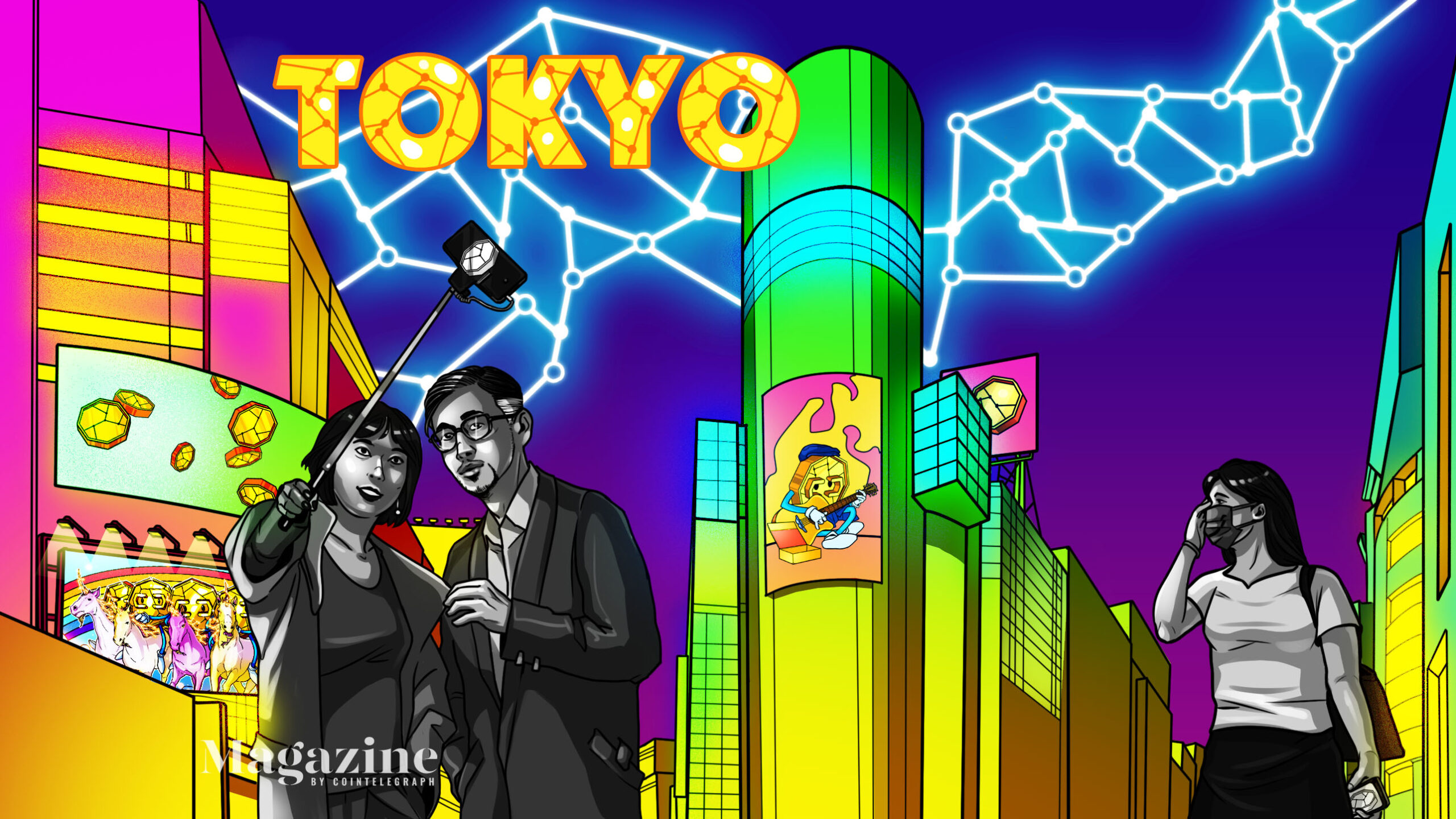This “Crypto City” guide looks at Tokyo’s crypto culture, the city’s most notable projects and people, its financial infrastructure at which retail
This “Crypto City” guide looks at Tokyo’s crypto culture, the city’s most notable projects and people, its financial infrastructure at which retailers accept crypto and where you can find blockchain education courses — and there’s even a short history with all the juicy details of famous controversies and collapses.
Fast facts
City: Tokyo
Country: Japan
Population: 14M
Founded: 1603
Language: Japanese
The largest city in Japan — actually an amalgamation of 23 different wards — is well known for its quirky cafes, famous nightlife, and that mix of modern and ancient which continues to make the country a popular draw for tourists. Many visitors from around the world are often surprised at Tokyo’s massive — yet nearly perfectly on time — a transit system that can carry them from Narita Airport all the way to the southern city of Kagoshima within a day.
Before becoming the high-tech modern city it grew to be in the 1970s and ‘80s, Tokyo started as a small fishing village named Edo. The shogun — essentially the highest leader in Japan, whose influence rivaled the emperor’s — established a military government in the area in the early 17th century. However, the city received its namesake as the “eastern capital” at the start of the period known as the Meiji Restoration, when the imperial capital in Kyoto was moved to Edo.
Tokyo has been home to two summer Olympics in 1964 and 2021 and hosts sumo tournaments, baseball games and international conferences in addition to being the setting of movies like Godzilla, Kill Bill, You Only Die Twice, and many others. Though often portrayed in the media as a homogeneous culture of people packed tightly together, a number of foreign nationals reside in Tokyo’s 23 wards with a variety of political viewpoints alongside their Japanese neighbors.
Many consider Japan as a country with a social system of insiders and outsiders, permeating every aspect of life in the country, from time with families to the legal system. Children with successful jobs often live with, or house, their parents for decades, and the work culture — while seemingly aimed at promoting a sense of camaraderie — has been criticized for exceptionally long hours, few vacations and an inflexibility for solutions outside of the box.
Even before the pandemic shut Japan’s borders to most temporary visitors, less than 3% of the country’s 126 million people were non-Japanese citizens, but there are reports the percentage may be three times larger in Tokyo. The country faces challenges including a rising aging population, courts with an unrealistically high conviction rate and underrepresentation from women in government and business.
Bitcoin Ads in Roppongi Hills, Tokyo pic.twitter.com/P7KGMLoMCn
— Sebastien 🏞 (@borgetsebastien) March 24, 2019
Crypto culture
Despite the etymology of Satoshi Nakamoto, experts and investigators have not definitively proven the legendary Bitcoin creator was Japanese — though they claimed to have lived in the country. While the search for Satoshi continues (and it’s unlikely to be Dorian Nakamoto, the man most pictured), Japan has been a popular place for crypto conferences and meetups.
If Satoshi Nakamoto isn’t lying, then he should go on Maury Povich to prove he’s not the father of Bitcoin. pic.twitter.com/y6fXQPChXK
— Troll Cat (@2p2TrollCat) March 7, 2014
Japan was one of the first countries to recognize digital currencies as legal property under its existing regulatory framework. According to the organizer of the Tokyo Bitcoin Hackers group, an American living in Japan known as Wiz, “the markets were crazy” in 2017 and token projects attracted a lot of attention from Japanese investors.
At the time, the government required crypto exchanges and brokers to register with the country’s Financial Services Agency, with Kraken not meeting the requirements and being forced to shutter operations until late 2020. Tokyo has been home to many exchanges, including the Mt. Gox (now defunct), bitFlyer, Liquid, Coincheck and even Binance’s offices briefly before the major exchange relocated to Malta.
“Meetups were very popular with lots of newbies wandering in, and mainstream media like NHK and TV Tokyo news crews would show up at the meetups with big video cameras and want to interview people and ask them silly questions like ‘how many Bitcoin do you own?’”
Another Meetup group, Bitcoin Tokyo, regularly gathered at different venues across the Roppongi, Shibuya and Akasaka districts, home to some of the first bars to host crypto ATMs and accept payments in Bitcoin starting in 2013. Roger Ver, the CEO of Bitcoin.com who moved to Japan in 2005, was the initial organizer of Bitcoin Tokyo which met from 2011 until 2018.
Although many foreign athletes were allowed to enter Japan for the 2020 Olympics that were held this year, there is no timeline for determining when short-term visitors will be once again able to attend in-person…
cointelegraph.com
